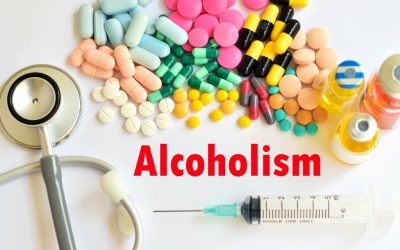That’s because some supplements can interact with medications and may not be suitable for everyone. Third-party tested supplements are preferable to ensure product quality and safety. However, towards the end of the first week, many individuals start to notice early signs of sleep improvement.
Magnesium for Hot Flashes and Night Sweats: Does It Really Help?

And you might notice the difference in a matter of days — 80% of users get better sleep within five days.
How to Fall Asleep Without Alcohol
This stops your brain from feeling stimulated and instead relaxes you. It goes without saying that alcohol can be an addictive substance. Drinking alcohol is often seen as something to do to let loose and enjoy oneself in the context of a party, bar, or other social scenario. When you drink alcohol, it messes with your brains natural chemical balance. It carefully monitors your brain chemicals and makes many minor adjustments to find balance. Sleep is very important to your wellbeing and a lack of sleep will affect your concentration, mood and physical strength.
Recent Posts
Avoid consuming these substances in the evening—ideally, limit caffeine after lunch and quit smoking or reduce nicotine use, particularly later in the day. Here is my top 10 list of herbs for a person that quit drinking and can’t sleep. Don’t let the fear of insomnia or other effects from alcohol cessation discourage you from seeking sobriety. With professional assistance, withdrawal and other side effects can be managed and you can achieve the quality of life you deserve.
What If I Wake Up in the Middle of the Night After Drinking?
The ability to fall asleep naturally often improves, and staying asleep throughout the night becomes easier. Indicators include a need for increased alcohol intake to fall asleep, experiencing withdrawal symptoms like irritability, and an inability to sleep without alcohol. Insomnia, as your body tries hard to adjust its disrupted sleep-wake cycle. The negative impact on your circadian rhythm is another major explanation for why many people face sleep issues when they decide to quit alcohol. The silver lining exists, with patients noticing a significant improvement in their sleep patterns as the body recalibrates its circadian rhythm. You may also be falsely attributing sleep improvements to alcohol, or factors a sleep disorder or poor sleep hygiene are keeping you awake.

Consider joining support groups for individuals with similar challenges. Organizations such as Alcoholics Anonymous (AA) provide peer support and a sense of community. They offer a safe space to share experiences and access emotional support. Once you abstain from it, your brain can start rebalancing itself, leading to better cognition, improved concentration, can’t sleep without alcohol and memory – crucial elements for professional success.
- You can check RISE for a personalized time to stop drinking alcohol based on your daily circadian rhythm, the internal clock that dictates your sleep cycle.
- In some cases, insomnia in alcohol recovery may persist for months or evens years after first getting sober.
- Your ability to control your emotions and behavior will also improve.
If you’re struggling to sleep without alcohol, transitioning to healthier sleep habits can make a significant difference in your overall well-being. Here are eleven comprehensive strategies to help you achieve restful sleep naturally, without depending on alcohol. The first week after quitting alcohol can be challenging for sleep.
How long after quitting alcohol does sleep improve?
- Secondly, during medical detox, you can take medicines that counter the effects of alcohol withdrawal.
- Alcohol addiction treatment will begin with a detox period that focuses on managing any uncomfortable or severe withdrawal symptoms that arise.
- It’s important to note, however, that these are usually a short-term solution and should be used under a healthcare provider’s guidance.
- Psychological withdrawal symptoms often include anxiety, depression, and intense cravings.
Alcohol interrupts your natural sleep cycle, reducing the restorative benefits you get from deep sleep. You wake up more often in the night, you rarely reach deep sleep, and you don’t sleep for as long as you should. In order to improve sleep quality and break the reliance on alcohol for falling asleep, it is important to establish good sleep hygiene practices. This involves adopting habits and creating an environment that promote restful sleep. Two key aspects of sleep hygiene are establishing a bedtime routine and creating a sleep-friendly environment.
Detox and rehab can take place in inpatient or outpatient settings. Outpatient treatment is best for mild alcohol addictions, and it allows patients to attend doctor and therapy visits while still living at home. Inpatient treatment is best for moderate to severe alcohol addictions or people who have relapsed. Inpatient treatment involves living on-site at the detox or rehab facility, an approach that keeps patients in a healing environment and allows for better monitoring and treatment. The bidirectional nature of the relationship between alcohol and sleep is also noteworthy. Poor sleep can lead to increased alcohol consumption as a coping mechanism, which in turn can further disrupt sleep patterns.